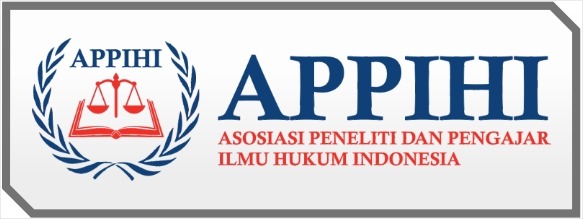Legal Dimensions of CSR: Impacts on Corporate Performance and Stakeholder Trust
DOI:
https://doi.org/10.61194/law.v2i4.727Keywords:
Legal CSR, Corporate Governance, Stakeholder Trust, Organizational Performance, Public Perception, Policy Compliance, Regulatory ReformAbstract
Corporate Social Responsibility (CSR) has evolved from a voluntary philanthropic endeavor to a strategic component deeply embedded in legal and regulatory frameworks. This study aims to explore the role of the legal dimension in CSR implementation and its influence on organizational performance and stakeholder perceptions. Employing a narrative review methodology, the research systematically analyzed peer-reviewed literature from major academic databases including Scopus, Web of Science, and Google Scholar. Through Boolean logic and thematic filtering, the study identified trends and patterns related to legal compliance, organizational commitment, and public trust. The results reveal that legal CSR contributes significantly to internal operational efficiency, enhances employee commitment, and elevates public acceptance. Legal compliance also serves as a strategic tool in reputation management and stakeholder engagement. However, systemic barriers such as inconsistent regulations, lack of institutional coordination, and limited legal expertise hinder optimal implementation. Policy instruments including mandatory reporting, fiscal incentives, and international standard adoption (e.g., GRI) have proven effective in enhancing compliance. Furthermore, public trust and legal knowledge act as key mediators, bridging the gap between policy and perception. This review underscores the necessity of a holistic policy approach and calls for reform in regulatory frameworks and organizational capacity building. The findings provide valuable insights for policymakers, corporate leaders, and scholars seeking to align legal frameworks with sustainable CSR practices.
References
Adhikari, D., Bajracharya, P., Chapagain, B., & Gautam, D. (2023). Managerial understanding of corporate social responsibility in Nepal. International Journal of Law and Management, 66(2), 172-194. https://doi.org/10.1108/ijlma-12-2022-0272 DOI: https://doi.org/10.1108/IJLMA-12-2022-0272
al., R. (2020). Corporate social responsibility practice and its effects on community well-being in Southeast Sulawesi, Indonesia. International Journal of Advanced and Applied Sciences, 7(4), 54-61. https://doi.org/10.21833/ijaas.2020.04.008 DOI: https://doi.org/10.21833/ijaas.2020.04.008
Becchetti, L., Ciciretti, R., & Conzo, P. (2020). Legal origins and corporate social responsibility. Sustainability, 12(7), 2717. https://doi.org/10.3390/su12072717 DOI: https://doi.org/10.3390/su12072717
Chavan, M., Gowan, S., & Vogeley, J. (2022). Collaborative corporate social responsibility praxis: case studies from India. Social Responsibility Journal, 19(2), 229-248. https://doi.org/10.1108/srj-06-2021-0216 DOI: https://doi.org/10.1108/SRJ-06-2021-0216
Chen, C., Khan, A., Hongsuchon, T., Ruangkanjanases, A., Chen, Y., Sivarak, O., … & Chen, S. (2021). The role of corporate social responsibility and corporate image in times of crisis: the mediating role of customer trust. International Journal of Environmental Research and Public Health, 18(16), 8275. https://doi.org/10.3390/ijerph18168275 DOI: https://doi.org/10.3390/ijerph18168275
Duarte, G., Procópio, S., Carneiro, A., & Cardoso, L. (2022). Development and validation of a tool for assessing sustainable social practices in food services. Sustainability, 14(24), 16791. https://doi.org/10.3390/su142416791 DOI: https://doi.org/10.3390/su142416791
Georgiadou, E. (2022). Communicating customer-CSR expectations on corporate websites: an analysis of the banking industry in the United Arab Emirates. Corporate Communications an International Journal, 27(4), 654-673. https://doi.org/10.1108/ccij-08-2021-0083 DOI: https://doi.org/10.1108/CCIJ-08-2021-0083
Hamid, S., Riaz, Z., & Azeem, S. (2020). Carroll’s dimensions and CSR disclosure: empirical evidence from Pakistan. Corporate Governance, 20(3), 365-381. https://doi.org/10.1108/cg-10-2018-0317 DOI: https://doi.org/10.1108/CG-10-2018-0317
Jarkovská, P. and Jarkovská, M. (2021). Corporate social responsibility of small- to medium-size enterprises as a solution to out-migration: an example from the hospitality sector. Geoscape, 15(1), 43-52. https://doi.org/10.2478/geosc-2021-0004 DOI: https://doi.org/10.2478/geosc-2021-0004
Kim, M., White, C., & Kim, C. (2019). Examining relationships among cultural factors and expectations of CSR. Journal of Communication Management, 23(4), 427-443. https://doi.org/10.1108/jcom-01-2019-0009 DOI: https://doi.org/10.1108/JCOM-01-2019-0009
Lin, C., Baruch, Y., & Shih, W. (2011). Corporate social responsibility and team performance: the mediating role of team efficacy and team self-esteem. Journal of Business Ethics, 108(2), 167-180. https://doi.org/10.1007/s10551-011-1068-6 DOI: https://doi.org/10.1007/s10551-011-1068-6
Mahenthiran, S., Terpstra-Tong, J., Terpstra, R., & Rachagan, S. (2015). Impact of executive citizenship and organizational commitment on corporate social responsibility. Social Responsibility Journal, 11(2), 387-402. https://doi.org/10.1108/srj-04-2013-0040 DOI: https://doi.org/10.1108/SRJ-04-2013-0040
Malik, A. (2024). Does corporate social responsibility dimensions effects on employees’ satisfaction and retention for sustainability?. Journal of Infrastructure Policy and Development, 8(8), 5154. https://doi.org/10.24294/jipd.v8i8.5154 DOI: https://doi.org/10.24294/jipd.v8i8.5154
McCredie, B. and Sadiq, K. (2019). CSR and tax: a study in the transition from an 'aggregate' to 'real entity' view of corporations. Pacific Accounting Review, 31(4), 553-573. https://doi.org/10.1108/par-11-2018-0088 DOI: https://doi.org/10.1108/PAR-11-2018-0088
Meynhardt, T. and Gomez, P. (2016). Building blocks for alternative four-dimensional pyramids of corporate social responsibilities. Business & Society, 58(2), 404-438. https://doi.org/10.1177/0007650316650444 DOI: https://doi.org/10.1177/0007650316650444
Minoja, M., Kocollari, U., & Cavicchioli, M. (2022). Exploring differences of corporate social responsibility perceptions and expectations between Eastern and Western countries: emerging patterns and managerial implications. International Journal of Cross Cultural Management, 22(2), 327-347. https://doi.org/10.1177/14705958221112253 DOI: https://doi.org/10.1177/14705958221112253
Montazeri, A., Talebpour, M., Andam, R., & Kazemnejad, A. (2017). Measuring corporate social responsibility in sport industry: development and validation of measurement scale. Annals of Applied Sport Science, 5(2), 97-114. https://doi.org/10.18869/acadpub.aassjournal.5.2.97 DOI: https://doi.org/10.18869/acadpub.aassjournal.5.2.97
Nguyen, T. and Anh, N. (2024). How to conduct CSR activities to build consumer trust and corporate reputation in COVID-19 pandemic?. Asian Academy of Management Journal, 29(1), 143-171. https://doi.org/10.21315/aamj2024.29.1.6 DOI: https://doi.org/10.21315/aamj2024.29.1.6
Silva, A., Silva, P., Coelho, V., & Sousa, A. (2022). The corporate social responsibility pyramid: its evolution and the proposal of the spinner, a theoretical refinement. Social Responsibility Journal, 19(2), 358-376. https://doi.org/10.1108/srj-05-2021-0180 DOI: https://doi.org/10.1108/SRJ-05-2021-0180
Uzma, S. (2016). Embedding corporate governance and corporate social responsibility in emerging countries. International Journal of Law and Management, 58(3), 299-316. https://doi.org/10.1108/ijlma-04-2015-0015. DOI: https://doi.org/10.1108/IJLMA-04-2015-0015






